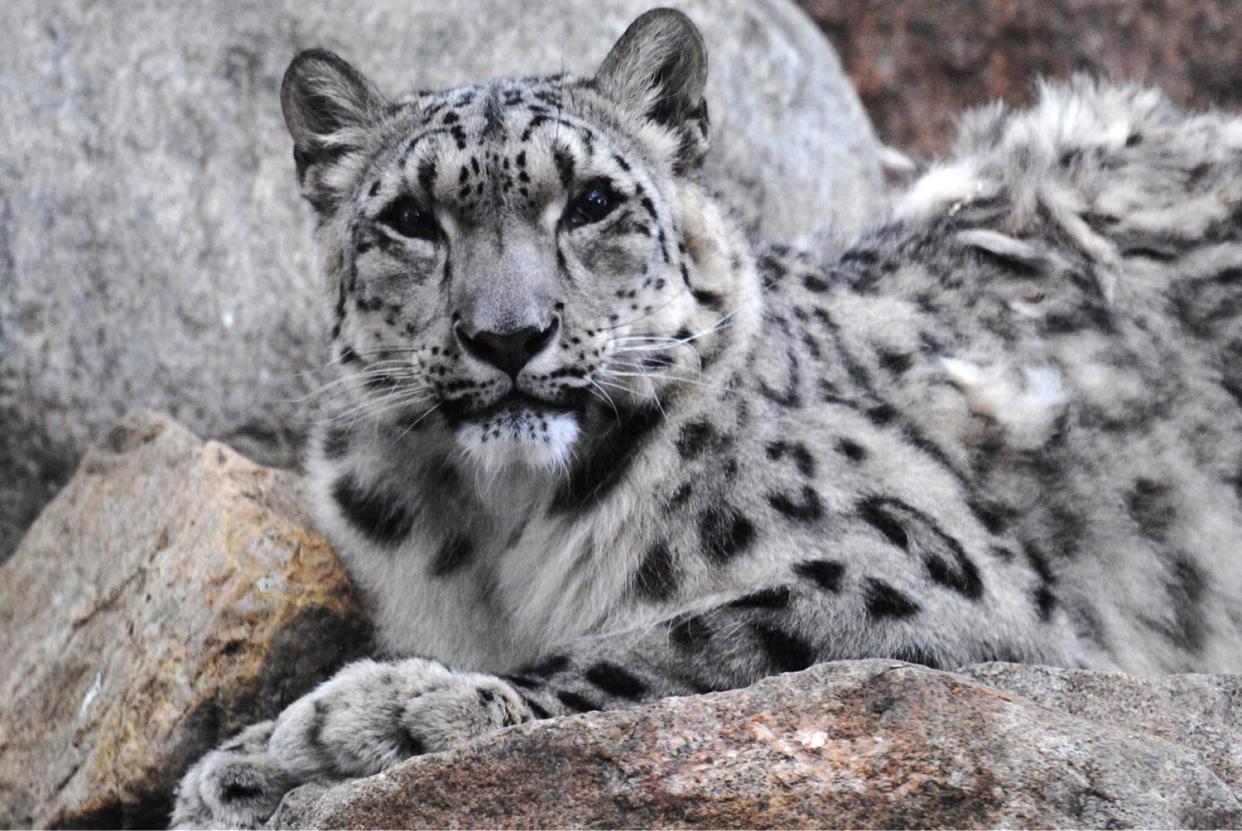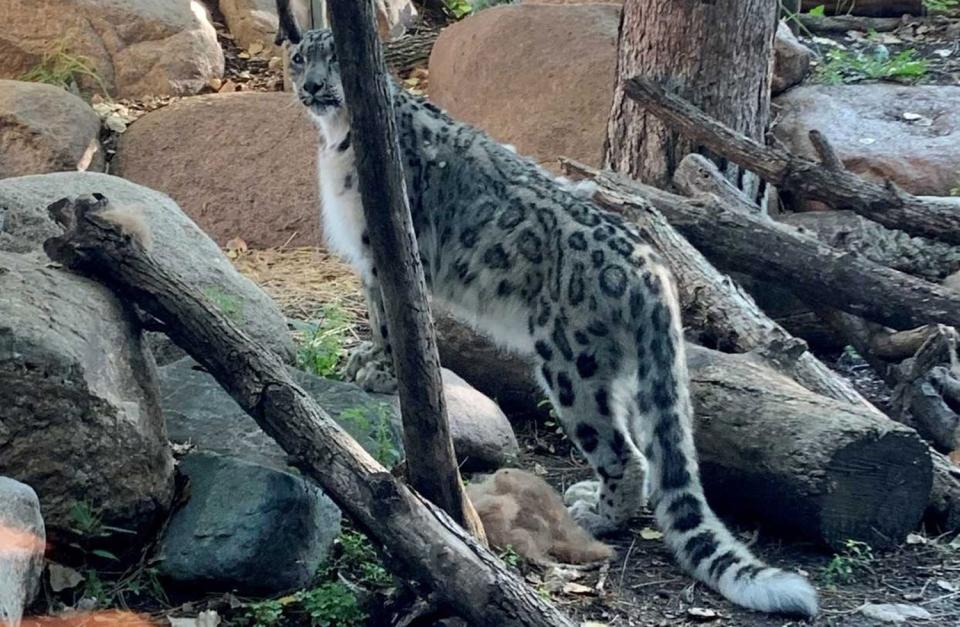Rare Snow Leopard with COVID-19 Symptoms Dies at South Dakota Zoo: 'A Deep Wound'

The Great Plains Zoo and Delbridge Museum of Natural History
A rare snow leopard named Baya has died at the Great Plains Zoo (GPZ) in South Dakota after exhibiting symptoms of COVID-19. She was 2 ½-years-old.
The Sioux Falls zoo announced Baya's death in a statement Friday, revealing she had passed away Oct. 7.
Earlier in the week, the young leopard began showing signs of a cough, inappetence, and lethargy — symptoms of the viral disease similar to those recently exhibited by other big cats at the GPZ. On Oct. 6, a tiger named Keesa "tested positive for the virus that causes COVID-19," the zoo said, and the next day, Baya experienced "a rapid decline of respiratory function."
A team of keepers began providing Baya with around-the-clock care, and the zoo's vet spoke with multiple specialists to determine the best course of action. On Thursday evening, Baya died.
RELATED: Endangered Tiger Dies After Breeding Introduction at Washington Zoo Turns Deadly: 'Devastated'
Speaking on behalf of the zoo in mourning the loss, Becky Dewitz, CEO of the GPZ, said in the zoo's release, "We are deeply saddened by the loss of Baya. Our animal care and veterinary staff fought arduously and did their best to help give Baya a fighting chance.
"Each day, our animal care staff work to give our animals high-quality care, and their passion and dedication are evident. This loss is a deep wound, and our team grieves together," she added.

The Great Plains Zoo and Delbridge Museum of Natural History
In the same statement, Baya's zookeepers remembered the leopard as "sweet and playful," adding that it was "an honor" to work with her. Like with all animals who pass away at the zoo, a necropsy will be performed on Baya to determine her cause of death.
Earlier this year, the young snow leopard was relocated from the Akron Zoo in Ohio to the GPZ in accordance with the Association of Zoos and Aquariums' Species Survival Plan for snow leopards.
RELATED: Researchers Say Human COVID Infections Can Be Passed on to Pets — Especially Cats
The rare leopards are currently listed as "vulnerable" on the International Union for Conservation of Nature's Red List, with about 4,080 to 6,500 estimated to be living in the wild today.
The CDC states that some animals around the world have been infected with the virus that causes COVID-19 since the pandemic began, typically after close contact with people with COVID-19. The agency states that the risk of pets spreading COVID-19 to humans is low, but humans with COVID-19 should protect pets by isolating themselves away from their animals until they are healthy.

